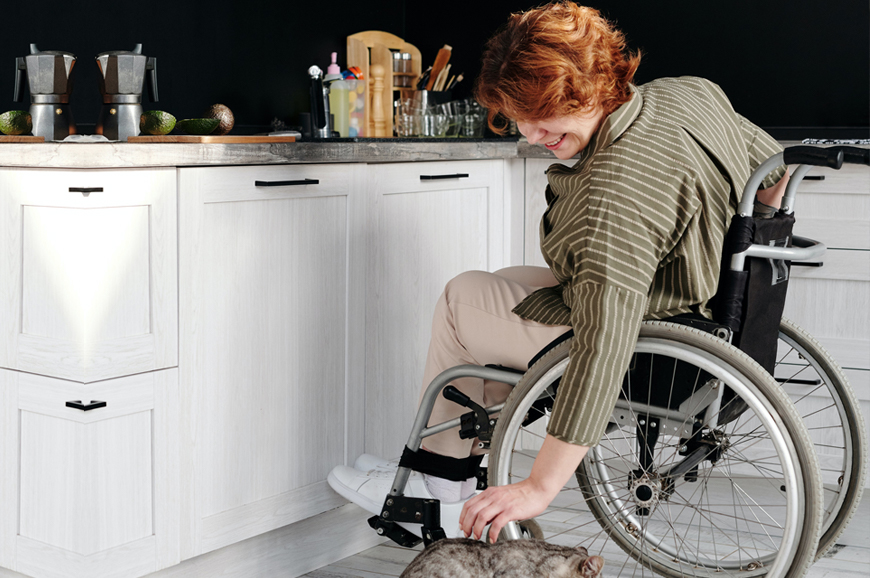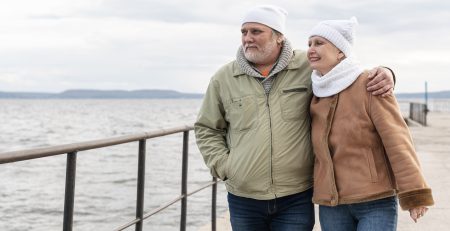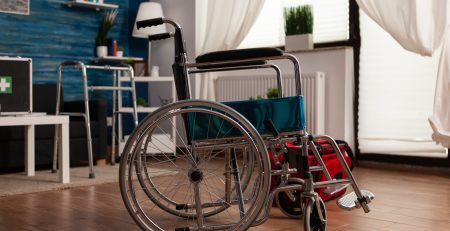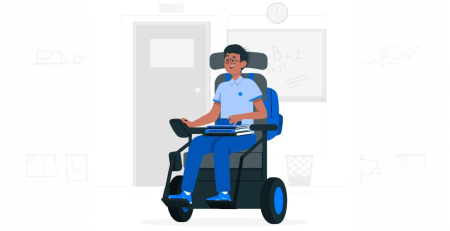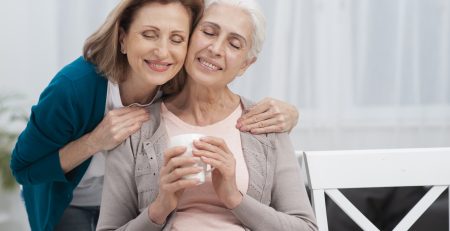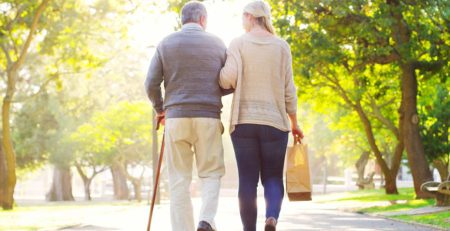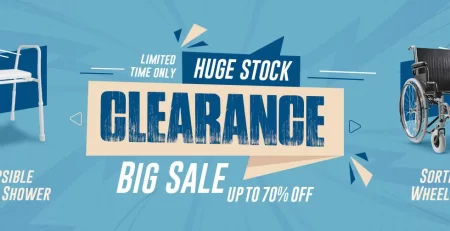- No products in the cart.
Essential Solutions for Aging Adults
Parents, grandparents, friends, and other loved ones who are experiencing the limitations and obstacles of aging might be seeking support, but unsure who to ask or feeling uncomfortable about asking. According to BMC Geriatrics, 20% of men and 30% of women as aging adults need help with at least one activity of daily living. Researchers at BMC predict that in 2035, the number of dependent adults will increase by one third.
Whether it’s walking, talking, eating, hygiene, or some other personal dependency, some gadgets can assist them when no one else can. These gadgets bring confidence to the elder and everyone closely related to them, who might worry about their wellbeing.
Mobility
Mobility is not limited to the once-thought simple acts of walking or running. Mobility can be expanded to things like getting into and out of bed in the morning or at night.
With that being said, it’s important to be up-to-date and know what’s currently available for semi to completely dependent people as far as mobility equipment goes.
The most well known mobility tool is a wheelchair. The first wheelchair was invented in Germany in 1665. It makes sense that upgrades have taken place over time with the developments in technology. Mobility scooters are the “new” wheelchair for elders, not even requiring self-propelling wheels. A simple push of conveniently located buttons will move an elder in any direction and at varying speeds. Power Chairs offer similar functions.
If your elder is still able to stand by themselves, it might not be appropriate to place them something so automated. They might prefer instead a walker, which is like a crutch on the front side of your body, or a rollator which is basically a walker with wheels, so they do not have to lift the walker as they step forward. Rollators and walkers can even have baskets attached, for carrying their things, and brakes.
If an elder is using one of these items consistently, it will be necessary to install ramps, if not already, where the elder is expecting to go. They may even require a mobile ramp, which can travel with them to relatives’ homes.
Depending on their level of dependence, elders might need a caretaking bed that raises and lowers with a controller, or a bed hoist. Caretaking beds can also recline, so your loved one can enjoy TV or food from the comfort of their bed. A bed hoist will assist them in getting in and out of bed, but they may require personal assistance with this if they cannot hold their body weight on their wrists or keep a steady balance. There are a variety of hoist styles to choose from, again, dependent on their conditions.
Adults who frequently attempt to get out of bed themselves, not used to the new challenges, or those who fall often, will benefit from a safety cushion, or protection floor mat, by their bed, which will protect them in case of a fall.
Hygiene
One of the greatest struggles for increasing-dependence elders is accepting someone’s help in bathing–until they have no choice. An elder who has been neglected at home or in nursing homes usually is determined so by their lack of hygiene.
Shower chairs and stools, bathroom rails, bath stoppers (to avoid overflowing), raised toilet seats, over toilets aids, and transfer benches, can make a grooming experience less stressful and dependent for some adults. Someone who is only semi-dependent can move from wheelchair, walker, or scooter, to transfer bench, to shower chair, possibly using rails. They can do the same to a raised toilet or toilet aid.
If someone is highly dependent, they may need assistance in doing some of the movements, but can enjoy their privacy when they get there.
Only those who are fully dependent will need assistance throughout the process, including wiping, bathing, applying deodorant, etc.
Dining
Eating is something we can all relate to. The necessity to be able to do so comfortably is obvious to everyone. Have you ever opted to not eat dinner because you didn’t want to go to the grocery store or endure the process of cooking? Imagine an elder, who is unable to lift, walk, or read properly, trying to cook something for themselves. It’s nearly impossible.
Luckily, there are grocery-delivering services, like Prime accounts with Whole Foods and InstaCart, that will allow you to order groceries for your loved one and have them delivered to their home or nursing home.
Of course, this doesn’t solve the solution for cooking, unless you order a bunch of microwave and oven-ready meals, which may not provide all the nutrients your elder needs. If it’s possible, you can do meal-prep with your elder once a week with the groceries delivered. This isn’t always an option if you are busy with personal obligations or live far enough away, so you can hire a part-time caretaker to do this task.
Because some elders need assistance with eating, various tools from dishware to cutlery and can openers are available, specialized for the disabled adult.
Emergency Assistance
Perhaps the most important, and arguably for all ages, is a device worn around the neck, or somehow attached to the body, in case of an emergency.
Emergencies can include a debilitating fall, a heart attack or stroke, breathlessness, getting stuck in any position, and so on. The unpredictability of an emergency, especially in aging adults, is what puts emergency assistance at the top of the list for recommended gadgets. These items can save your loved one’s life, as well as provide them (and you) security in knowing they have on-demand assistance.
The button, when pressed, will contact emergency personnel and, depending on the gadget, might result in an ambulance or some mode of communication–typically an ambulance.
Similar gadgets might include a sensor to contact the caretaker whenever the elder has moved locations. This is especially helpful for elders with dementia or Alzheimer, who might get lost.
Comfort
Comfort, regardless of age, tends to be of number one concern to the individual and their loved ones. Just because they have all the assistance they need does not imply that they are comfortable in using them, physically or mentally.
Proper training and practice under the supervision of the above tools are recommended for the mental comfort of your elder. Physical comfort can be obtained with cushions, reachers, corner bumpers, non-slip socks, big button TV remote, reachers, vision aids, sock aids, night lights, and the unthinkable.
Have you ever seen an elder, who can’t even walk, try to put on their own socks? A simple act can really disempower aging adults. That’s why it is so important to assist where you can. There are sock aids, little contraptions that assist with putting socks on from an upright seated position. Also, non-slip sock companies make a promise to develop socks that won’t slip over the heel, resulting in frequent re-applying.
Eyesight tends to be the first thing to decrease in adults if it hasn’t already through childhood and teenage years. Luckily, this is no surprise, and many companies are in on the movement to assist with things like larger fonts for easier reading. TV remotes and cell phones offer this, including smartphones with a simple switch of a button in the Keyboard settings. When bedridden, sometimes TV and reading are all that are available to your loved one, so ensuring they are experiencing that comfortably and confidently will make the world of a difference. Additionally, a reacher might be helpful in assisting adults in getting something just out of arm’s reach, while staying seated comfortably in their bed or chair. These are also helpful for older people who experience weak grips.
If your parent or relative is in a seated mobile device, or they spend ample amounts of time sitting in a recliner, it’s also essential that they have access to soft cushions that provide them comfort throughout the day. This is always a personal preference and, thus, may require a bit of trial and error to find the perfect match.
Adults that are independent at night, and can help themselves to the bathroom or other amenity, might also benefit from a sensor night light. Night lights can prevent unstable adults from falling in the dark, but a manual night light might keep your loved one up in the night, as they are more sensitive to sleep impairments.
Unthinkables might include book lights, zip and button-up tools for dressing, medication reminders, wireless home phones, TV speakers for hearing disabilities, automated vacuum cleaners, and an accessible first-aid kit.
As you can see, there are so many ways to support your loved one through the aging process(es). These things give them a sense of independence, empowering them and preventing depression, confusion, embarrassment, and fear of uncertainty. Trying one, a variety, or all of these solutions are dependent upon your elders’ needs and disabilities. Having a conversation with them will allow you both to understand what’s necessary for their well being moving forward.




